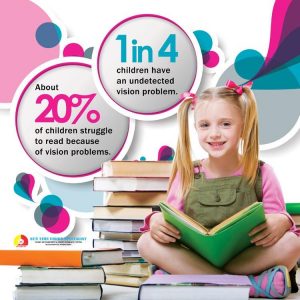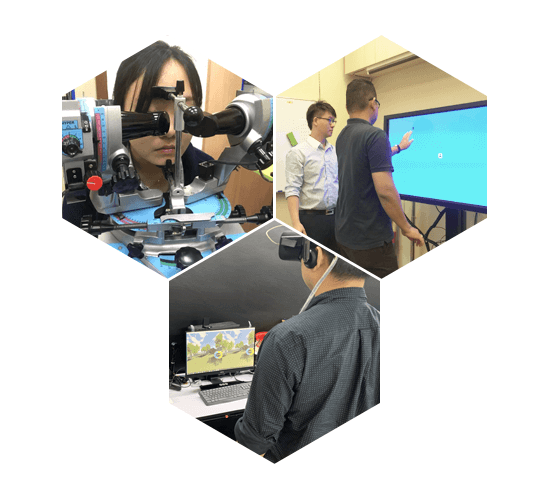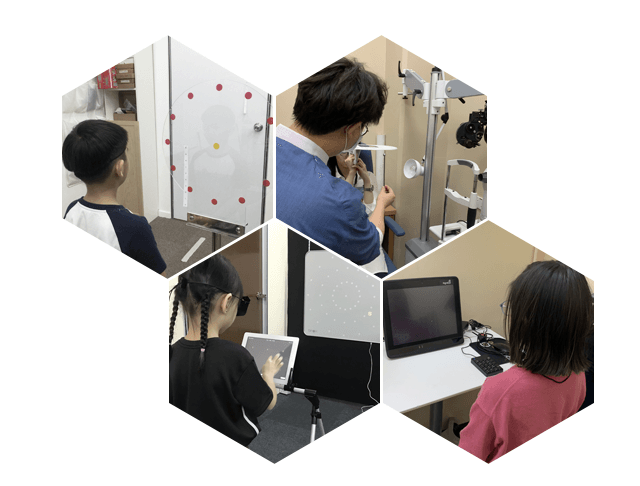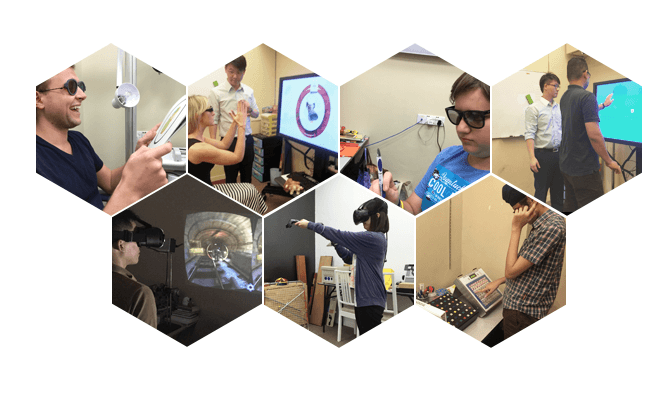


Dyslexia is a common learning difficulty and disorders that cause difficulty with learning, reading, interpreting words, letters, and other symbols. It is a "specific learning disability", however, it does not affect the general intelligence. Since learning to read requires both phonetic and eidetic processes, which are cognitive ways to decode and encode words respectively, vision problems can interfere with learning process with both encoding and decoding words. In short, vision problems can cause problems with sight recognition, reading comprehension, memorization, recall, fluency, speed, rhythm and the length of time spent reading or writing.
In order to know how a Neuro-Developmental & Behavioral optometrist can help diagnose and manage vision related learning difficulties in dyslexic individuals, it is helpful if the patients know some basic that related to the categories of dyslexia. Click Here- A word from British Dyslexia Center.
The following terms regarding dyslexia are for your information, but the bottom line is the label is not what really matters (though sometimes it is necessary to begin correct treatment and management). What is important is what can be done about the difficulties the child is experiencing to make it easier for them to learn. Don't let the labels and terms make you forget the child.

The three most common types of dyslexia and how Neuro-Developmental & Behavioral optometrists can help:
1. Dysphonesia - A dysfunction where the primary problem is letter-sound integration. They are unable to identify words or letters with their accompanying phonetic sounds. They cannot attack unfamiliar words using skills such as phonics, syllabication and/or structural analysis. This is a decoding problem. Dysphonetics rely on eidetic coding (word attack skills). You can think of eidetic coding as memorizing words instead of sounding them out. Words like "pneumonia" and "mnemonics" are eidetically coded. Dysphonetics may recognize familiar words but are incapable of efficiently decoding unfamiliar and multisyllabic words because they have difficulty sounding out and blending sounds together. For example, if they were taught the word "deal" they may still have difficulties with the word "seal" or not know how to read the word "dealing." These children tend to need more educational help rather than optometric remediation, though remediating any vision problems that could be causing some of the difficulty is always helpful.
2. Dyseidesia - A dysfunction that involves whole word decoding, a more global process in which words are recognized based on their shape and configuration. This is the opposite of dysphonesia. People that are considered dyseidetic lack the ability to take whole words or configurations and perceive them as a unit symbol (or gestalt), but can use skills such as phonetics (sounding out words), syllabication and structural analysis. This means they don't have good word attack skills. It is more of an encoding problem. They have problems storing information, which involves sequential memory (knowing the right order of things). Consequently, retrieval of information is difficult. People who experience this dysfunction rely on phonetic coding instead, which can lead to incorrect spelling. Some researchers have found that these individuals have deficient short-term visual memory (the ability to recall previously presented visual experiences), visual discrimination (the differentiation between visual patterns), visual figure ground (differentiating a particular part of a visual field, e.g. Where's Waldo), and visual sequential memory (visualizing in a particular order). These problems are often remediated by visual perception training. Visual perceptual therapy can improve a person's reading skills and comprehension, assuming they are still provided the proper educational instruction.
3. Dysnemkinesia - A dysfunction that involves memory and motor movement. Individuals with this dysfunction tend to be distinguished by their abnormally high frequency of letter reversals. It is the dysfunction most people think about when they hear the word dyslexia. This is actually a developmental issue. It occurs due to poor development of the visual spatial skills known as laterality and directionality. They have problems with things like symbol orientation. For example, "p" "b" "q" and "d" are all the same symbol oriented in different ways. Dysnemkinesics will not see this symbol as being different letters when oriented differently and will confuse them. Consequently, Dysnemkinesics tend to transpose letters and syllables, exhibit faulty eye movements, demonstrate excessive reversals, and have spatial difficulties. They often have poor sight recognition and tend to have trouble building up a sight vocabulary. Reading tends to be slow and difficult since they often read and spell phonetically. Dysnemkinesia is the easiest type of dyslexia to identify and manage by an optometrist skilled in vision training.

NOTE: You can have one or more types of dyslexia at the same time, e.g. dysphoneidetic.
What Should You Do If You Suspect A Child Of Having Dyslexia?
Since vision is such an integral part of the way we learn and process information, children who have difficulty in reading and/or who are poor spellers may have coding problems and should receive a comprehensive optometric examination to rule out vision problems in all areas of vision function including input, processing, storing, retrieval and output.
According to research, it is clear that individuals already labeled dyslexic, reading or learning disabled, as well as children experiencing academic difficulties can all benefit from Behavioral optometric intervention, such as vision therapy.
Though there is no age restriction for therapy , it is important to realize that the earlier patients can be treated, the more vision therapy makes an impact in academic performance because the longer a person goes without therapy , the farther they get behind in school, the lower their self esteem and the longer it takes to change poor learning habits or compensations.
Not all optometrists specialize in learning related vision problems. Sun Time Vision Specialists is one of the certified optometry centre that caters specific eye screen for dyslexia (learning difficulty). Mr. Stanley Tien from Sun Time Vision Specialists, is a Neuro-Developmental and Behavioural Optometrist in Malaysia who is Board Certified in Vision Development and Vision Therapy (FCOVD).

An Important Note To Remember
Though it is a Neuro-Developmental & Behavioral Optometrist's responsibility to help diagnose and treat children who manifest some type of visual dysfunction, and that visual dysfunction can make learning and reading more difficult, it is important to reiterate the fact that optometrists DO NOT treat learning or reading disabilities.
There are learning specialists and special educators that specialize in learning disabilities. Vision therapy can be an effective method in improving academic performance, but often a multidisciplinary approach with other professionals dedicated to working with these kids is the best course of action.
Copyright 2020. All Rights Reserved. Designed By: Upstore